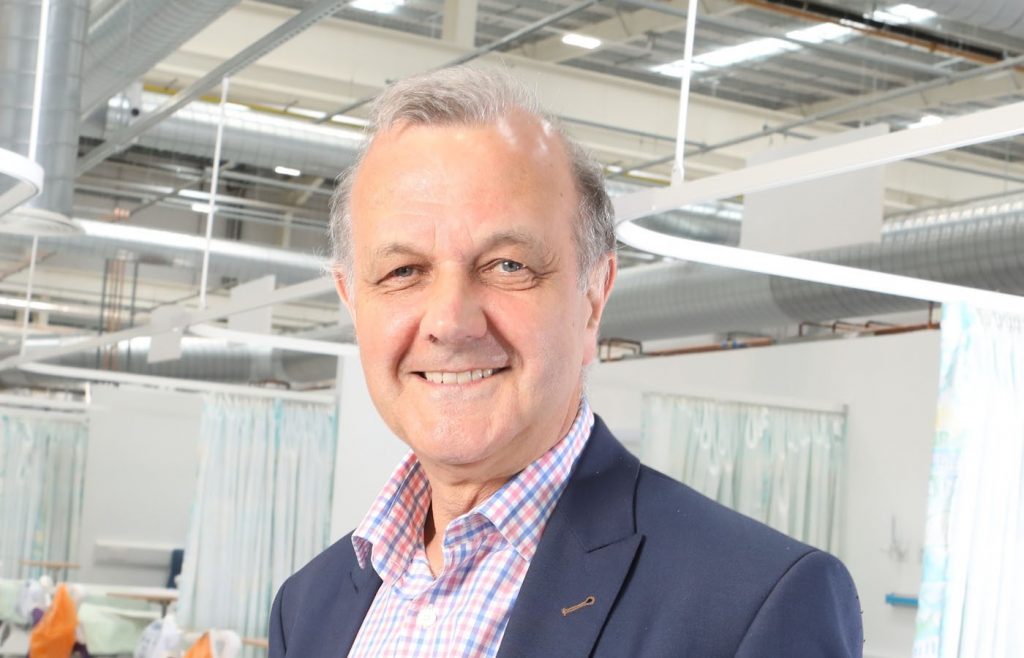A clinical trial led by researchers in Newcastle is investigating the best way to administer a potential treatment for rheumatoid arthritis.
Rheumatoid arthritis causes joint pain, stiffness, and redness and swelling of the joints. The condition is caused by the immune system attacking healthy tissue.
Body’s defence system
The immune system is the body’s defence against ‘threats’, such germs, infections, illness, and injury. It is regulated by dendritic cells, which instruct white blood cells to either react to a threat or to stand down, to avoid damaging healthy tissue.
Research to date has shown promise for a potential treatment for rheumatoid arthritis called tolerogenic dendritic cell (tolDC) therapy.
The therapy works by taking a sample of white blood cells which are then sent to a specialist laboratory. The cells are stabilised and then injected back into the body to help calm the overactive immune system.
In phase I of the AuToDeCRA trial, Newcastle researchers tested a tolDC therapy and determined it was safe to give to patients.
Phase II of the trial – AuToDeCRA2 – assesses where the treatment should be injected and its effect on the immune system.
Significant impact on life

Professor John Isaacs, a consultant rheumatologist at Newcastle Hospitals, is chief investigator for the study. He said:
“Rheumatoid arthritis can have a significant impact on a patient’s quality of life. It is currently managed by taking immunosuppressant drugs, usually for life, and these medicines can have unpleasant side effects.
“Based on the first phase of the trial, we know that this treatment can safely be given to patients. We now need to determine if where we inject the medicine makes a difference to how well it works.
“In time, this treatment could provide significant benefits to people living with rheumatoid arthritis by ‘switching off’ the disease and avoiding the need for life-long treatments, with their associated side effects.”
Around 20 patients will take part in the trial and three different ways of administering the injection will be tested – into a joint, into the skin, or directly into lymph nodes.
The aim of the study is to confirm whether the treatment is having the desired effect on the participants’ immune system, as well as any change in their symptoms.
27,000 new cases each year
The trial is funded by Versus Arthritis and the European Commission’s Horizon 2020 Innovative Medicines Initiative-2.
It is delivered collaboratively by Newcastle Hospitals and Newcastle University and is running from the trust’s National Institute for Health and Care Research (NIHR) Clinical Research Facility, based at the RVI.
The trial is also supported by the NIHR Biomedical Research Centre: Newcastle.
Lucy Donaldson, director for research & health intelligence at Versus Arthritis, said:
“Currently, 450,000 people in England are living with rheumatoid arthritis, with 27,000 new cases identified each year. The pain and challenges of this condition can profoundly affect daily life, making it difficult for many to manage even basic tasks.
“At Versus Arthritis, we understand the significant burden that rheumatoid arthritis places on individuals and their families. That’s why we are deeply committed to advancing research into new approaches to treatment.
“We believe that through dedicated research, we can uncover better solutions to make rheumatoid arthritis preventable, treatable, and manageable for all.”
Resetting the immune system
Prof. Isaacs, who is also professor of clinical rheumatology and director of Therapeutics North East at Newcastle University, adds:
“The concept of ‘resetting’ the immune system in rheumatoid arthritis and other autoimmune diseases has gained support over recent years and we are excited to be pioneers in this field.
“We are extremely grateful to have received funding from Versus Arthritis and the European Commission for this vital research, and to our patients who have taken part in the trial to date.”
Niklas Blomberg, Executive Director of Innovative Health Initiative (IHI), said:
“Seeing the results from the IMI RT-Cure project being applied as part of the AuToDeCRA-2 clinical trial clearly demonstrates how the Innovative Medicines Initiative (IMI) and the IHI are supporting research that tackles important public health issues.
“The immune monitoring outcome measures developed by the IMI RT-Cure project being used in this trial will give better indications of how well these experimental new medications may help to treat rheumatoid arthritis, which currently affects over 18 million people worldwide.”
“Couldn’t stand up without being in pain”

54-year-old Jane Sutton from Newcastle started getting pain in her fingers in 2015. With a family history of joint problems, her GP referred her to the rheumatology service at Newcastle’s Freeman Hospital where she was diagnosed with rheumatoid arthritis.
The mum-of-one was prescribed methotrexate which helped control flare-ups for a couple of years, however in 2019 Jane was unfortunately diagnosed with breast cancer and underwent surgery to remove the cancer.
Following surgery, Jane received five months of chemotherapy and is now thankfully in remission.
Jane, who was taking methotrexate before her cancer diagnosis, restarted on the medication but struggled with nausea.
In February 2024, she was prescribed biologics, a type of treatment used if other medications like methotrexate cause side effects, which brough her flare-ups under control.
When Jane was told about the AuToDeCRA-2 trial from researcher Dr Ema-Louise Long, she was keen to take part.
“Although my symptoms are currently under control, I know first-hand how painful and challenging it is living with rheumatoid arthritis. At one point, I couldn’t stand up without being in pain.
“I think clinical trials like this are so important and will hopefully help find a treatment that has less side effects compared to current medicines.”
The trial is not currently looking for further participants.
